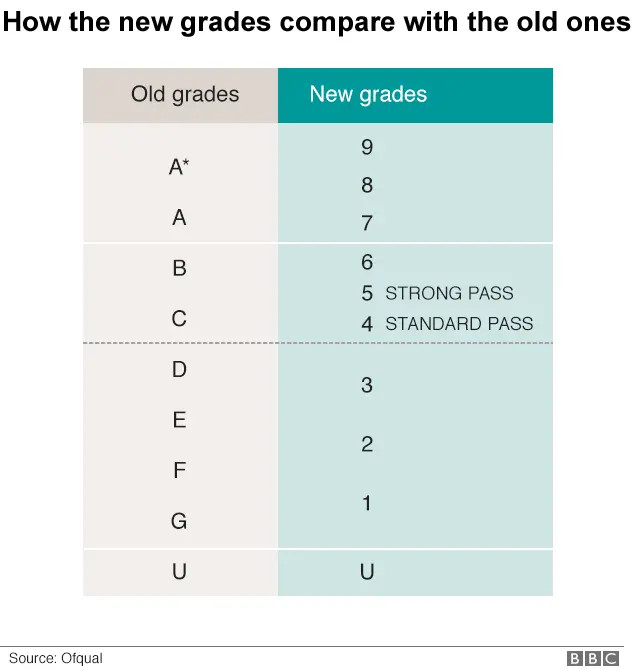Twenty-year-old Oliver Hodgson dropped out of school in Year 10 with no formal qualifications after enduring years of bullying. Yet, his perseverance and vision to build a life paid off with his now successful six-figure PR firm, Platinum Live.
With a small but dedicated team under his leadership, he predicts a turnover of £500k by June 2025. Without any GCSEs or A-Levels himself, he offers words of encouragement to those receiving their results and aren't best pleased - suggesting that grades "aren't the defining factor of any young person's future".
Speaking from his experience Oliver, from Cumbria, said: "Long gone are the days of students being funnelled down one size fits all routes. It is very archaic and does not allow people to express themselves."
"Grades aren't the defining factor of any young person's future. They aren't make or break," reports the Mirror.
"In reality, so many companies nowadays are focused more on people who are adaptable team players willing to learn and grow and those with real experience and talent - not what grades they got in their GCSEs. The education system today is not a true reflection of the modern working society, from how people dress in the workplace to hierarchy and working practices. Times have moved on."
Businessman Oliver has also given back out chances like he needed when starting out, offering four interns aged between 16 and 20 with a comprehensive introduction to media relations, copywriting, photography, and design this summer. The urge to pursue his career was set alight at the age of 14 during his first internship experience within a local MP's press office.
He said: "I remember thinking 'I want to get into this world'. People who have just finished their GCSEs need to think about what they really want to do and follow it. We like to show the interns how we got to where we are."
However, Oliver's journey hasn't been without its challenges. After facing bullying at school which saw him subjected to painful experiences - including derogatory graffiti daubed on toilet walls. Oliver's mental health was profoundly affected, leading to his early departure from formal education.
Looking back, he considers that there are now positives that came from making such a difficult decision, believing that it ultimately contributed to his success. He didn't mince words when commenting on the current state of education.
He said: "Schools are becoming exam factories. Mounting insane pressure on young teenagers leads to serious mental health issues. Kids feel they will only succeed in life if they have A* qualifications. It's so wrong."
To support his argument, Oliver pointed to online stories of successful figures despite lacking top grades such as Richard Branson, Deborah Meaden and Mike Ashley. Setting his sights firmly on a vocation in PR, Oliver embarked on his work journey at just 15 years old, gaining experience with both a local taxi firm and a nightclub.
He said: "I started out with just £25 in my bank account - of which I spent £12 registering the company with Companies House."
Platinum Live, a creative communications agency, has delivered PR, social media, content creation, and consultancy services to over 70 clients, boasting a social media reach exceeding 22 million. The agency's portfolio includes collaborations with high-profile names such as Tinie Tempah, Chris Moyles and Scouting for Girls.
Agency head Oliver said: "Platinum Live is going from strength to strength. The average age of the team is 38 and hiring decisions in the past 12 months have always been based on experience."
He also offered advice to the younger generation about leveraging technology for career advancement. He said: "Most young people have laptops and a WiFi connection, which is incredibly powerful. Gen Z get a lot of stick for supposedly being lazy but I don't think it is true. I want to be an example of that."
Dropping Out: 'I thought ‘well that was a waste of my life’'
“I left school with nothing and failed all my exams, despite trying really hard,” the now 22-year-old tells i. “I can distinctly remember one of my friends turning to me and saying: ‘What are you going to do now? You’ve got nothing. I bet you wish you’d tried harder now.’
“But I was thinking: ‘Actually, I did try pretty hard.’ I wasn’t a slacker at school. I saw a Maths tutor, I put the work in and my homework was always done on time. I just found school abysmal and really struggled.”
As young people around the country find out their A-level results today, Jayson recalls his own feelings of being left behind after failing his GCSEs and seeing his friends go on to study A-levels and head off to university or go to London to pursue accountancy apprenticeships.
“When I looked at my results, I got literally nothing. There wasn’t one pass – it was all U’s and D’s. I thought ‘well that was a waste of my life’ and I went home and got absolutely grilled by my mum, my dad, my gran and everyone.”
Jayson only found out later that he had been battling with undiagnosed dyslexia his entire school life. “My family didn’t know I was dyslexic at the time, so they said things like I should have tried harder and asked how I could have done so badly when I had told them I had been doing the work and it felt like I didn’t have a leg to stand on.”
In primary school, he says he was “bullied horrendously” because of the way he looked, and took up kickboxing as a result. “I used to get shoved around and beaten up in the playground,” he said.
“One day, I came home and told my mum I’d had enough of it, so we found a Muay Thai kickboxing gym and I trained there for six years and became strong and ended up getting the British champion title at 16.
“From being someone who was heavily bullied, I had a lot more confidence and shot up and became particularly good at sports in school. I won the district athletics for my school and am the record holder for my school in high jump.”
But while he excelled at sports, Jayson, who lives in Southend, Essex, struggled in lessons and remembers finding Maths and Science particularly difficult. “I would sit at the back of the classroom and try the best I could, but I wouldn’t really get it.
“I would ask so many questions of the teachers. But when they had a class of 35 kids, they didn’t have time to come to the back of the classroom and teach me one-to-one.”
After failing his GCSEs, he knew he needed a full-time job. He dreamt of becoming a truck mechanic, so the day after he finished school, he jumped on his bike and took his CV to transport companies within the area.
Soon after, he was taken on by a mechanic as a yard hand earning £3.30 an hour and he cycled four miles there and four miles back every day. “I was washing lorries and sweeping in the yard in the rain and snow, but it was mechanics and I was getting experience. I did that for a year.”
Jayson then pursued an apprenticeship with truck manufacturing company DAF but was asked if he had any GCSEs. “I told them that I didn’t, but that I promised to work really hard and do whatever they needed me to do and make the teas,” he recalled.
“The boss said: ‘I love your attitude and asked when I could start’ and I said ‘tomorrow.’”
Jayson took two trains and a bus to get to his DAF apprenticeship until he passed his driving test. As part of the apprenticeship, he had to take an aptitude test and “failed miserably.”
“The director at the time called me into his office and asked me if I was dyslexic. He and my line manager then asked me the test questions verbally and I scored 97 per cent.”
He has two lorries, a van and a warehouse and has ambitious plans to grow his business and give another young person a chance by taking on an apprentice himself.
'Success isn’t linear'
Jayson is an ambassador for Generation Logistics, a campaign raising awareness of the career paths within the logistics sector, which offers hope to those who may not achieve what they hoped for on exam results day.
He is also a member of the Road Haulage Association Council and wants to give hope to young people who might be feeling dismayed with their exam results.
“It’s not about where you start – it’s about where you’re heading and how you’re willing to work when you get there,” he said. “Find your passion and run with it.
“Integrity and pride in your work will always propel you forward. If you’ve got a dream, stick with it and if you work hard for it, you’ll get there.”
He added: “On exam results day, you hear from your head, your heart and your gut. My head told me that I was going to amount to nothing and would be picking out bins and sweeping yards for the rest of my life.
“But my heart and gut told me that if I work hard and try to believe, anything is possible.
“My advice to those who are disappointed on exam results day is to not worry about what your head is telling you, but to listen to your heart and follow your gut.”
Bethany Windsor, programme director of Generation Logistics, said: “Jayson’s journey is a powerful testament to resilience and hard work.
“As results day approaches for many students, Jayson’s story offers hope and inspiration, proving that success isn’t linear and is absolutely possible, no matter what your skill sets or academic qualifications.”
From Music Events to a Thriving Agency
Danielle Knights, 33, left school at 16 and decided at the last minute against college, choosing instead to pursue a career in the music industry.
She now runs booking and management agency Live and Love Music, a successful business organising 1,000 events a year and working with major international brands.
She told i: “I’ve always been into music. In my teenage years, throughout secondary school, I went to gigs and festivals and I was lucky enough to go backstage at a few of them because I knew some of the bands.
“I just loved the buzz of it and meeting all the musicians.”
After her GCSES, “I was planning to go to college because everyone was. I didn’t really want to go but I thought it was expected.”
She later learnt that she might not be able to do two of her chosen subjects, and “on the day of enrolment I just didn’t want to go, and I spoke to my mum and she said: ‘Well if you don’t want to go you don’t want to go; it’s your choice’.”
“From there I tried to do a bit of online work in online Facebook marketing, and didn’t really earn much money.
“I started organising live music events just before I turned 17,” she said, adding that she finding artists to work with through the social media platform MySpace.
“It was quite easy to book bands for free in order to showcase the music, so that’s how I did it. I did a few shows in Reading, and then I did one in Brighton with Jessie J before she was famous.
“I was really shy at school, so it was quite a big thing for me to go and organise these events and be in charge of them. I pushed myself to do it.
“When I was about 19 I turned it into an agency rather than putting on my own events because it was easier to be the go-between between the venue and band rather than spending months organising an event and not getting any money for it.
“I love it. It doesn’t feel like a job because it becomes a lifestyle. All my friends are musicians, I go to gigs and meet people and social life and work is kind of rolled into one.
“I’ve built up a really nice community of local musicians in Reading who are all my friends now,” she says. However, building the business has required a lot of hard work, and Danielle has to work evenings and weekends, as well as being on hand to reply to clients at all times.
“I’m doing 1,000 events per year all on my own. It’s exhausting but it is paying off.”
She says that during the pandemic, when most live events had to be cancelled, “I thought ‘what am I going to do?’ There are things I could do, like marketing, but I’m not trained in it so would have to start from scratch.”
However, she “persevered,” and her business tripled in the year after Covid restrictions came to an end. This year, she was also asked to join the board of the UK Blues Federation.
Danielle believes that “if you can turn a passion into a business, it’s good to start at a young age,” even though “it’s not really taught in schools to be an entrepreneur or to think outside the box and for yourself.
“You’re taught something, you have to memorise it then repeat it in an exam. It doesn’t really show someone’s intelligence; it’s more about memory.”
However, she tells young people who are not sure that college and university are for them: “You only get one life,” so “if you’re not going to be happy in a job working nine to five in an office” it is not worth settling for this kind of career.
Danielle says that she has achieved everything in her career “without any courses or university, just hard work, networking and having a passion for doing something in an industry that I love. I’m now looking to expand my business and gradually hire a team.”
'If 10 people say no, I will find the 11th who says yes'
But through unwavering self belief, persistence and a clear vision, he has built his own six-figure PR firm.
He now employs seven team members - but is set to expand to 10 in the autumn - and says they're on track for a turnover of £500k by June 2025.
Oliver didn't secure any GCSEs or A-Levels but has reassured those receiving their results that companies look beyond grades - saying they "aren't the defining factor of any young person's future".
Oliver, who runs Platinum Live, from Whitehaven, Cumbria, said: "Long gone are the days of students being funnelled down one size fits all routes.
"It is very archaic and does not allow people to express themselves.
"Grades aren't the defining factor of any young person's future. They aren't make or break.
"In reality, so many companies nowadays are focused more on people who are adaptable team players willing to learn and grow and those with real experience and talent - not what grades they got in their GCSEs.
"The education system today is not a true reflection of the modern working society, from how people dress in the workplace to hierarchy and working practices. Times have moved on."
Oliver has also provided opportunities to four interns aged between 16 and 20 this summer.
The interns were given a crash course in media relations and copywriting, as well as photography and design.
He said: "Providing internships is really important to me - to show what working is really like."
Oliver encourages students to pursue their passion - regardless of their results.
He said: "That brown envelope, whatever the results students pull out today, will not define them as a person.
"Even if people don't get what they hoped for, opportunities will still be out there - you just have to go out and find them."
Oliver discovered his career aspirations aged 14 through his first ever internship at his local MP's press office.
He said: "I remember thinking 'I want to get into this world'.
"People who have just finished their GCSEs need to think about what they really want to do and follow it.
"We like to show the interns how we got to where we are."
After a horrible time being bullied at school - with nasty graffiti written about him on the toilet cubicle walls - Oliver's mental health issues led to him leaving school.
In hindsight, Oliver has seen the silver linings of leaving school early.
He said: "Schools are becoming exam factories. Mounting insane pressure on young teenagers leads to serious mental health issues.
"Kids feel they will only succeed in life if they have A* qualifications. It's so wrong.
"You only have to look online to see how many inspiring leaders of today started with nothing, no grades and no money. Think Richard Branson, Deborah Meaden, Mike Ashley and so forth."
Set on PR as a career path, Oliver started working aged 15 with the local taxi driver company and a local nightclub.
Oliver says he started out with just £25 in his bank account - of which he spent £12 registering the company with Companies House.
He said: "Access to finance has always been tricky as the banks tend to laugh at you being a young MD, but I have constantly found a way."
Oliver got his first big break in June 2020 when he secured an account from a healthcare company at the height of the Covid-19 pandemic.
He said: "I still work with them. I am big on relationships - they are never going off my books."
Pupils under-18 who failed to achieve a 4/C in English Language and Maths can resit in the autumn.
Oliver opened his first office in May 2021 and acquired his first celebrity client in Gary McKee - also known as Cumbria's 'Marathon Man' - who ran a marathon every day of 2022.
As Gary's publicist, Oliver helped him to raise more than £1.4m for Macmillan Cancer Support and West Cumbria Hospice at Home.
Oliver was also balancing his time with running an events management company until January this year when he turned his undivided attention towards his business, Platinum Live.
Platinum Live has provided PR, social media, content creation and consultancy services to more than 70 clients with a social media reach of more than 22m.
The creative communications agency has worked alongside people such as Tinie Tempah, Chris Moyles and Scouting for Girls.
Oliver said: "Platinum Live is going from strength to strength.
"The average age of the team is 38 and hiring decisions in the past 12 months have always been based on experience."
Oliver encouraged young people to harness technology to get ahead and build experience.
He said: "Most young people have laptops and a WiFi connection, which is incredibly powerful.
"Gen Z get a lot of stick for supposedly being lazy but I don't think it is true. I want to be an example of that.
"You have got to be a team leader and a doer.
"I never take no for an answer. I am just speaking to the wrong person. If 10 people say no, I will find the 11th who says yes."
Although Oliver encouraged young people to take the initiative, he has also been supportive of taking breaks and seeking out life experience.
He said: "There will be so much anxiety built up around results but they are only 16 - there is no rush.
"And I always advocate for career breaks or travel."


















